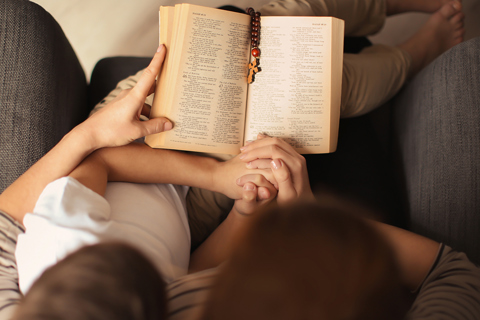Family law disputes involving religion

There is a widely held belief that you shouldn’t bring up two topics at a dinner table – one is politics, and the other is religion. Religious beliefs, by their nature, are closely held and deeply personal belief systems. It is unsurprising then, that some separating parents may have different approaches to their child’s religious upbringing. So, what happens if a dispute arises over what religion to raise your children in following separation?
What will the Court consider when dealing with disputes about religion?
Under the Family Law Act 1975 (Cth) (“the Act”), the Court presumes (unless rebutted) that it is in the best interests of the child for their parents to have equal shared parental responsibility for that child. Parental responsibility can be regarded as the ability to make long-term decisions that will impact on a child.
If a child’s parents have equal shared parental responsibility, the law expects that they will consult one another and make a genuine effort to come to a joint decision about things like education, religion, location (where the child shall live), and health.
It’s important to remember that parental responsibility does not relate to the amount of time a child will spend with their parents. You can read our blog “What does parental responsibility mean?” for more information.
The Act sets out key factors to guide the Court in determining what will be in a child’s best interest, including the “maturity, sex, lifestyle and background (including lifestyle, culture and traditions) of the child and of either of the child’s parents”.
It is generally considered, although not explicitly set out, that religion would be considered part of a family’s culture and traditions.
What if we can’t agree on which religion to raise a child?
The Court has taken a range of approaches when making decisions related to disputes about religion.
These include:
-
Granting an injunction preventing a parent from exposing a child to their religion where such exposure will likely cause “considerable confusion” to the child. This is related to matters where both parents were followers of competing faiths.
-
Refusing to grant an injunction to restrain a parent from exposing a child to the parent’s religion in matters where that child could not develop a meaningful relationship with the parent if they were not exposed to the religion.
-
Granting sole parental responsibility to one parent on the question of religion, even where the parties share parental responsibility on other longer-term issues.
-
Restricting a parent’s time with their child if they relentlessly portray the other parent’s religion as evil or unsavoury to the child.
The Court will not make decisions preferring one religion over another
According to the principles of the Family Court case of Elspeth v Peter, it is not appropriate for the Court to determine a preference for one religion over another or for no religion.
In each case, the Court will consider all of the circumstances and try to understand how the religious beliefs and practices impact on the child and their relationship with both parents and their community. The Court will always make Parenting Orders made in “the best interests of the child”.
Where possible, the Court often takes the view that a child could be exposed to the beliefs and practices of both parents, with the view that the child can make their own decision as to their religion.
In 2018, the case of Zenere & Malik and Ors [2018] again highlighted the Court’s reluctance to make any assumptions about a particular set of religious beliefs or favour one over another.
In this case, the mother was otherwise confident in the father’s parenting capacity, and ultimately there wasn’t any evidence that suggested the father couldn’t expose the child to his faith safely and appropriately. The Court concluded that the father’s religious beliefs did not represent a risk to the child and therefore denied the mother’s application to restrain the father from exposing the child to his religious beliefs and practices.
How can a family lawyer help?
Navigating a co-parenting relationship after separation is often a delicate tango requiring both parties to act respectfully and be willing to compromise at times. Probably more so when parents are considering such personal issues like their religion. It is always preferable for parents to reach an agreement as opposed to going to Court to settle any indifferences. After all, you understand your family more than a Family Court judge will.
This is a very complex area of law. Our experienced team at Meillon and Bright can help you to understand what things to consider if you wish your children to continue participating in your religious practices or if you believe the other parent’s religion clashes with your children’s best interests.
Contacting Meillon & Bright
Family Lawyers Perth & Sydney
The information contained in this article is of general nature and should not be construed as legal advice. If you require further information, advice or assistance for your specific circumstances, please contact Meillon & Bright Family Lawyers.

